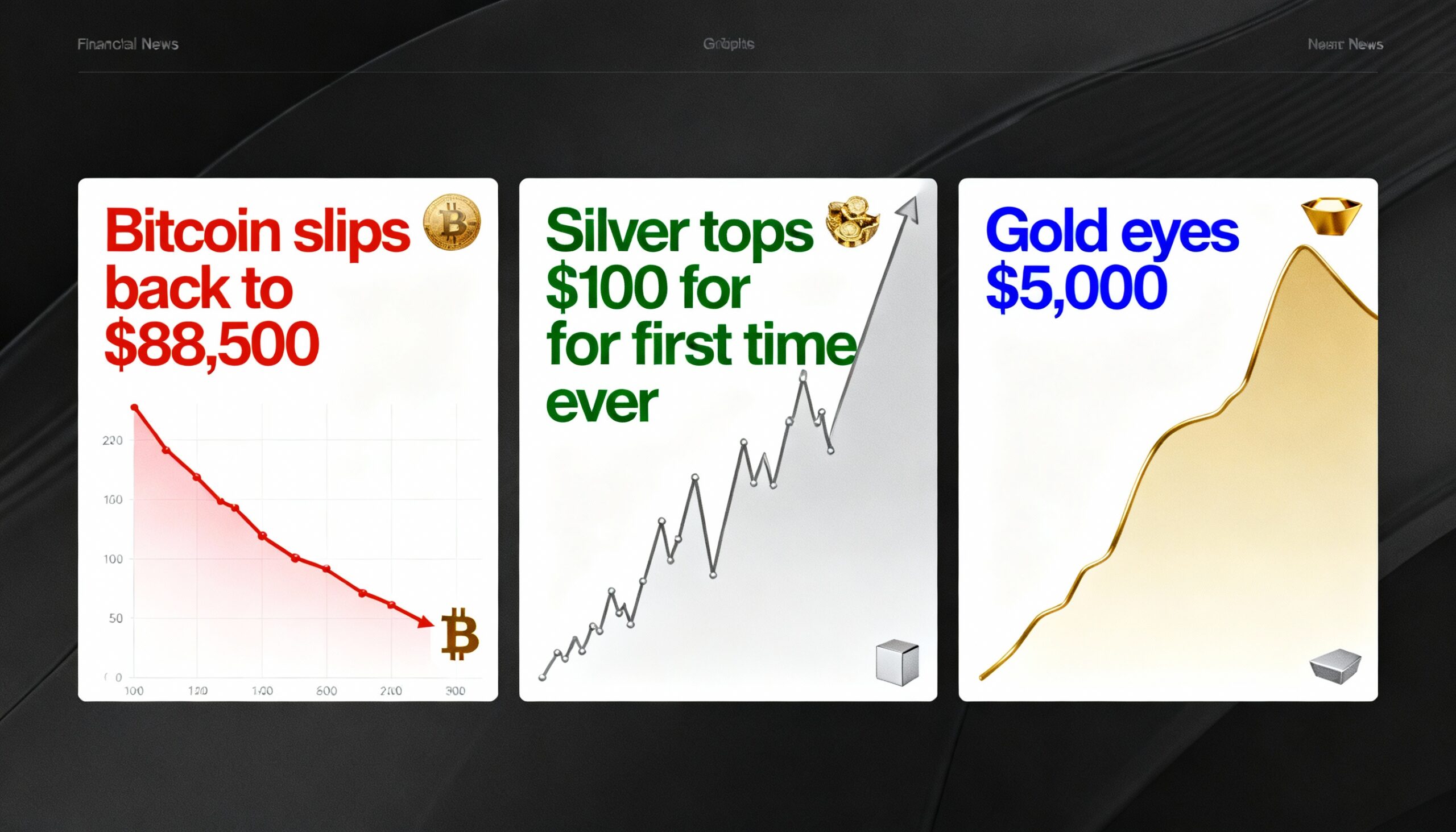Bitcoin and U.S. Equities Begin to Drift Apart as Market Volatility Intensifies
On Wednesday, Bitcoin (BTC) and U.S. equities took divergent paths, signaling potential early signs of a diminishing correlation amid growing market uncertainty.
In a typical portfolio, assets are expected to show little to no correlation with one another. For example, gold has been hitting record highs, setting 12 new daily records this year, indicating a separation from the performance of U.S. stocks.
Bitcoin, which has traditionally been linked to the Nasdaq 100, now appears to be losing its close ties to the index.
A key illustration of this shift was BlackRock’s iShares Bitcoin Trust (IBIT), which only trades during U.S. market hours. While the Nasdaq 100 plunged more than 3%, at one point dropping 4.5%, IBIT managed to close with a 0.46% gain.
Similarly, MicroStrategy (MSTR), a Bitcoin-sensitive stock within the Invesco QQQ Trust (QQQ), rose by 0.30%, even as all seven of the largest tech stocks in the Nasdaq closed in negative territory. This underlines the growing disconnect between Bitcoin and traditional equities.
The correlation between Bitcoin and the Nasdaq fluctuated throughout the day. During remarks by Federal Reserve Chair Jerome Powell, both assets dropped in tandem. However, Bitcoin quickly recovered, rising back above $84,000, while the Nasdaq continued its decline before seeing some recovery near the close of the trading day.
Powell’s comments leaned more hawkish than expected, focusing on inflation risks driven by tariffs and price hikes, which he described as an “evolving risk.” Short-term inflation expectations also rose in response.
What caused even more market unease was Powell’s response to whether the Fed would step in to protect the stock market during downturns. When asked about the possibility of a “Fed put,” Powell firmly stated, “I’m going to say no.”
The “Fed put” refers to the long-held market theory that the Federal Reserve will intervene to stabilize markets in times of crisis. Bitcoin, however, lacks such a built-in safety mechanism. The crucial question now is whether Powell’s response was a signal of the Fed stepping away from its role as a market stabilizer or just a temporary stance.





